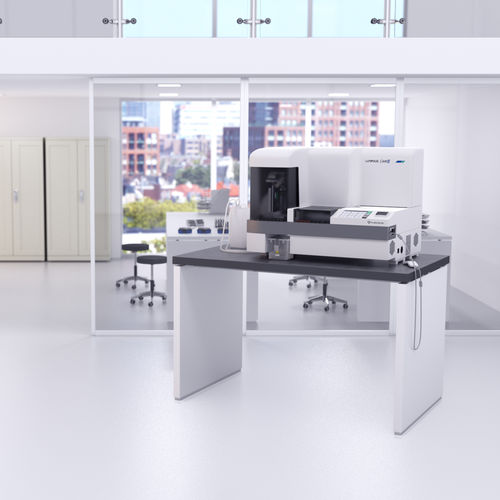
#Industry News
Fujirebio Europe launches Lumipulse® G Mesothelin, the first fully automated immunoassay to aid in the diagnosis of malignant mesothelioma
Fujirebio Europe today announced the release of the Lumipulse G Mesothelin assay for its fully automated LUMIPULSE G1200 immunoassay system
Gent, Belgium: February 22, 2016 – Fujirebio Europe today announced the release of the Lumipulse G Mesothelin assay for its fully automated LUMIPULSE G1200 immunoassay system. This CE-marked CLEIA (chemiluminescent enzyme immunoassay) kit allows for quantitative determination of Soluble Mesothelin Related Peptides (SMRP) in human serum or plasma within just 30 minutes. The Lumipulse G Mesothelin assay is based upon Fujirebio’s well established ELISA-based MESOMARK® assay and further broadens Fujirebio’s fully automated tumor marker assay portfolio.
“Although malignant mesothelioma is relatively rare, this disease, linked to exposure to asbestos, remains a considerable healthcare challenge in numerous parts of the World,” said Christiaan De Wilde, CEO of Fujirebio Europe. “Our manual ELISA-based MESOMARK test has already been used widely in laboratories in these regions for several years. The expertise of our teams with this disease, and our great know-how in oncology in general, was of course essential when we were asked by our customers to bring mesothelioma testing to our fully automated LUMIPULSE G range. We are proud to say that this new test in our tumor marker portfolio matches with the high standard that laboratories across the world now expect from tumor marker tests from Fujirebio.”
About Mesothelioma
Mesothelioma is a rare form of cancer that is linked to exposure to asbestos. Although malignant mesothelioma remains a relatively uncommon malignancy, it continues to represent an important cause of mortality in numerous areas worldwide; eg, England, Wales, continental Europe, and Australia. Recent estimates suggest that in coming decades, as much as 1% of deaths among men in the United Kingdom currently aged 49-54 may be due to mesothelioma.1 Age standardized incidence rates for mesothelioma in men range from around 8 per 100,000 in Scotland, England, and The Netherlands; 2-4 per 100,000 in France, Italy, and Germany; and 1 per 100,000 in Spain.2 The corresponding rate for Australia is estimated to be around 6 per 100,000.3 The disease is more likely to occur in men than in women.
The products mentioned in this press release might not be available in the USA and in Canada. Please contact us for further information.
About Fujirebio
Fujirebio is a world leading healthcare company with a strong focus on high quality in vitro diagnostics (IVD) testing and more than 50 years’ experience in the conception, development, production and worldwide commercialization of robust IVD products.
Founded in 1950 in Tokyo, Japan, and active in IVD since 1966, Fujirebio has over the years performed a number of successful acquisitions of experienced and best-in-class quality IVD players, such as Centocor Diagnostics in 1998, CanAg Diagnostics in 2006 and Innogenetics in 2010. Today, Fujirebio’s global presence includes offices in the United States, Latin America, Europe and Asia as well as a vast international distribution network.
Fujirebio has a strong and long lasting tradition for developing high quality routine and truly novel biomarkers in collaboration with the clinical community worldwide. Fujirebio’s IVD product lines span the range from specialized manual and automated testing to fully automated routine clinical laboratory testing solutions. The company offers both novel and routine state-of-the-art biomarkers that cover a variety of disease states.
Fujirebio is today a fully owned subsidiary of Miraca Holdings (listed in the Tokyo Stock Exchange - MRCHF) and employs more than 1.200 people in Asia, Europe and America, including subsidiaries.
For more information about Fujirebio please visit www.fujirebio-europe.com.
References:
1.Huncharek M. (2002) Non-asbestos related diffuse malignant mesothelioma. Tumori. Jan-Feb;88(1):1-9.
2.Montanaro F, et al. (2003) Pleural mesothelioma incidence in Europe: evidence of some deceleration in the increasing trends. Cancer Causes and Control. 14:791-803.
3.Leigh J, Davidson P, Hendrie L, Berry D. (2002) Malignant mesothelioma in Australia 1945-2000. Am J Ind Med. 41:188-201.






